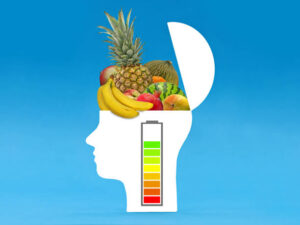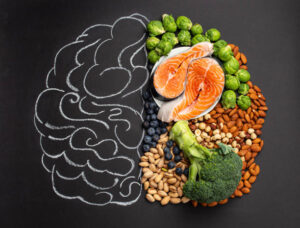When it comes to veganism, most people have a strong opinion one way or another. For some, it’s an enlightened path to health, sustainability, and compassion. For others, veganism can seem like an over-hyped or even “annoying” trend that’s hard to relate to. Yet, with more research backing its health benefits and its positive environmental impact, it might just be time to admit that vegans are onto something.
This article dives into the core reasons why adopting a vegan or plant-based diet is increasingly important. We’ll look at the key distinctions between a vegan diet and a plant-based diet, dig into the science behind vegan health benefits, and even address some common concerns and misconceptions.
Understanding Veganism vs. Plant-Based Diets
Defining Veganism
Veganism goes beyond just food choices; it’s a lifestyle rooted in ethics. When someone adopts a vegan diet, they’re committing to not consuming animal products—not just meat, but also dairy, eggs, and even honey. For many vegans, this commitment is about more than health; it’s a stand against animal cruelty and a pledge to reduce their impact on the planet.
This ethical foundation often makes veganism feel like a strong personal belief, similar to a philosophy or religion. And because it’s rooted in ethical conviction, vegans can be pretty vocal about it, which is part of where that “annoying” stereotype comes from.
I’ll admit, even as a heart health expert, I used to find it a bit much when friends would mention veganism at every meal. But as I learned more about it, I realized they weren’t just trying to be different—they were passionate about a lifestyle with strong health and ethical advantages.
Plant-Based Diets Explained
On the other hand, a plant-based diet is a bit more flexible and often emphasizes health over strict ethics. When you’re on a plant-based diet, your meals are centered around plant foods—vegetables, fruits, whole grains, legumes, nuts, and seeds. You may still eat animal products occasionally, but they’re not the main focus.
Plant-based diets are usually adopted for health reasons. They’ve been linked to lower risks of chronic diseases, obesity, and increased longevity. However, they don’t require the complete elimination of animal products, which makes this approach easier for people who may not be ready to fully commit to veganism.
The Science Behind Why Vegan Diets Work
Heart Health Benefits
One of the biggest reasons I champion veganism as a heart health expert is its tremendous impact on cardiovascular health. Studies show that vegan diets can reduce LDL (or “bad” cholesterol) and lower blood pressure, which are key markers in preventing heart disease. A plant-based diet is naturally high in fiber, which is a powerful tool in managing cholesterol levels and promoting heart health.
When I transitioned to a more plant-based diet, my cholesterol levels dropped significantly within months. I used to be a skeptic, but those results spoke volumes. And with heart disease being the leading cause of death worldwide, anything that lowers risk is worth considering.
Gut Health and Digestion
One of the most underrated benefits of a vegan diet is its effect on gut health. Our digestive system thrives on fiber, and plant-based diets are loaded with it. Fiber keeps our digestion regular, reduces the risk of colon cancer, and helps balance blood sugar.
A healthy gut microbiome can lead to better nutrient absorption, which means we’re able to get more benefits from the food we eat. Since plant-based diets are fiber-rich, they fuel the good bacteria in our gut and lead to better digestion and a stronger immune system. It’s like giving your gut a daily workout with fiber-rich foods.
Longevity and Disease Prevention
The science on plant-based diets and longevity is compelling. Research has shown that people who eat more plants live longer and have a lower risk of diseases like cancer and diabetes. The antioxidants and phytonutrients in plant foods have anti-inflammatory properties that fight off cellular damage, one of the root causes of aging and disease.
This is significant because chronic inflammation is linked to many modern diseases. A vegan diet naturally lowers inflammation, potentially leading to longer and healthier lives. In my experience, people who start adding more plant foods to their diet often report feeling more energetic and less achy, almost like they’ve rolled back the clock on their health.
Environmental Benefits: A Big Reason They’re Right
The Environmental Impact of Animal Farming
Beyond personal health, one of the biggest reasons to consider a vegan diet is its positive impact on the environment. Animal agriculture is a leading cause of greenhouse gas emissions, deforestation, and water pollution. By reducing our consumption of animal products, we can reduce our environmental footprint significantly.
I remember watching a documentary that showed the massive amount of water required to produce just a single pound of beef. It was mind-blowing. This water could go to communities in need, and the land used for grazing could be better utilized to grow plants. Switching to a vegan diet can help us conserve resources and reduce our carbon footprint.
Ethics and Sustainability
The ethical aspect of veganism is hard to ignore. Every time we choose a plant-based meal over an animal-based one, we’re reducing demand for practices that harm animals and the environment. Whether or not you’re vegan, considering where your food comes from and the impact it has on the world is an eye-opening exercise.
Veganism and plant-based eating align perfectly with sustainability. It’s a way of eating that works with nature rather than against it, promoting a healthier planet and a more sustainable food system.
Common Concerns and Rebuttals
The Protein Deficiency Myth
One of the most common misconceptions about vegan diets is that they don’t provide enough protein. The reality is, there are plenty of plant-based sources of protein, from legumes and grains to nuts and seeds. Foods like quinoa, lentils, chickpeas, and tofu are protein-packed and versatile.
I often ask my clients to track their protein intake for a week, and they’re surprised by how much they’re getting from plants alone. When we add things like tempeh, hemp seeds, and even greens like spinach, they quickly see that protein is hardly an issue.
Nutrient Deficiencies (B12, Iron, Omega-3s)
Another common concern is the potential for deficiencies, particularly in vitamin B12, iron, and omega-3 fatty acids. While it’s true that B12 is typically found in animal products, it’s also available in fortified foods and supplements, which vegans can easily incorporate. Iron and omega-3s can also be found in plant-based sources like lentils, chia seeds, and walnuts.
Yes, it takes a bit of planning, but so does any diet. A well-rounded vegan or plant-based diet with a few supplements can easily meet all your nutritional needs.
Social and Cultural Barriers
Social situations and family gatherings can be tricky for vegans. I’ve had my fair share of holiday dinners where I was the only one eating a plant-based meal, and at first, it felt awkward. But I found that with a bit of communication and planning, it got easier. Often, friends and family became curious, and I’d share some delicious vegan dishes with them.
If you’re navigating these situations, try bringing a dish to share. This can open up conversations and let others see that plant-based meals are tasty and satisfying.
Is Veganism That Difficult?
The Rise of Accessible Vegan Options
Gone are the days when being vegan meant a limited, bland menu. Today, you can find vegan options almost everywhere—from fast food to fine dining. Grocery stores carry plant-based milk, meat alternatives, and dairy-free cheeses that make transitioning easier than ever.
A friend recently switched to a vegan diet after trying some new vegan products on the market. He was amazed at how good they tasted and how convenient it made the whole process. With more options than ever, eating vegan is far less intimidating than it used to be.
Everyday Tips for Making Veganism Work
If you’re considering a shift toward veganism, start small. Try Meatless Mondays, experiment with plant-based recipes, or swap dairy milk for a plant-based alternative in your coffee. Gradual changes make the transition smoother and allow your taste buds to adjust.
Focus on what you can add rather than what you’re taking away. When I started eating more plants, I explored new vegetables, grains, and legumes. This made the experience fun and helped me appreciate all the flavors and textures plant-based foods offer.
Admitting They’re Right—The Takeaways
Why Going Vegan or Plant-Based is Worth Considering
After years of research and personal experience, I’ve come to believe that vegans are onto something. The health benefits, environmental impact, and ethical advantages of a vegan or plant-based diet are hard to ignore. Even if you’re not ready to fully commit to veganism, incorporating more plant-based meals can have a profound impact on your health and the world around you.
The Future of Eating: Veganism and Plant-Based Diets as the New Norm
As people discover the benefits of plant-based eating, veganism and plant-based diets are becoming increasingly mainstream. In the future, plant-based diets may become the norm, not the exception, as we seek healthier, more sustainable ways of living.
A powerful motivator for considering vegan and plant-based diets is their potential to prevent up to 8 million deaths per year by 2050, according to University of Oxford researchers. By focusing on fruits, vegetables, and plant-based proteins instead of animal products, we not only reduce personal health risks but also contribute to cutting food-related greenhouse gas emissions by up to 70%. This shift could have transformative effects on both human health and the environment, underscoring the significant impact of diet on our world.
Conclusion: Embrace What Works for You – Why a Shift Matters
Whether you go fully vegan or adopt a more plant-based diet, every small change matters. Veganism might seem a bit intense at times, but at its core, it’s about compassion, health, and sustainability. By exploring plant-based eating, you’re taking steps toward a lifestyle that benefits you and the planet. And maybe, just maybe, it’s time we admit—vegans have been right all along.







